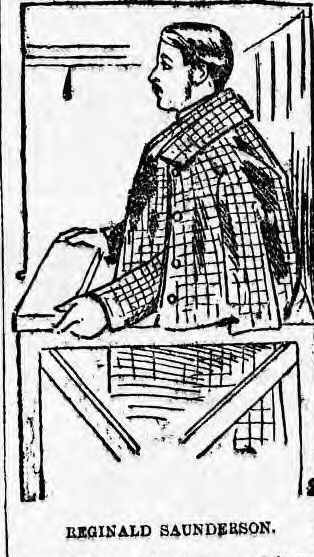Originally posted by Debra A
View Post
Mrs. Down's testimony seems to be elsewhere contradicted by the testimony of a woman named Mrs. Alviens (elsewhere given as Arkens) who lived in The Haymarket. Alviens appears to be claiming that Saunderson had stayed with her, evidently more than once, in 1894, prior to the murder of Augusta Dawes in November. She also makes a strange reference to being cautioned about Saunderson in June 1894--five months before his escape and murder of Dawes.
If Saunderson was so outwardly harmless and inoffensive, why was his father warning Mrs. Alviens about lodging him for the night back in June 1894 (the same month as the Southend murder)? And how could he have been staying with her anyway, if he hadn't been out of the institution since 1892? It's all a bit of a mystery. (Most probably Mrs. Down was only referring to absences without leave, and there were other occasions between 1888-1894, when leave had been granted).
Prior to the murder, Saunderson's father had evidently come up with a scheme to have the lad shipped off to Canada in order to take-up farming, hence he was given access to gardening tools, including the knife he later used to murder Augusta Dawes.



Leave a comment: